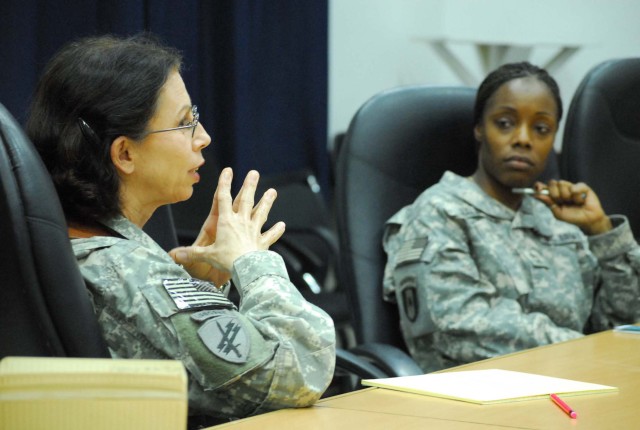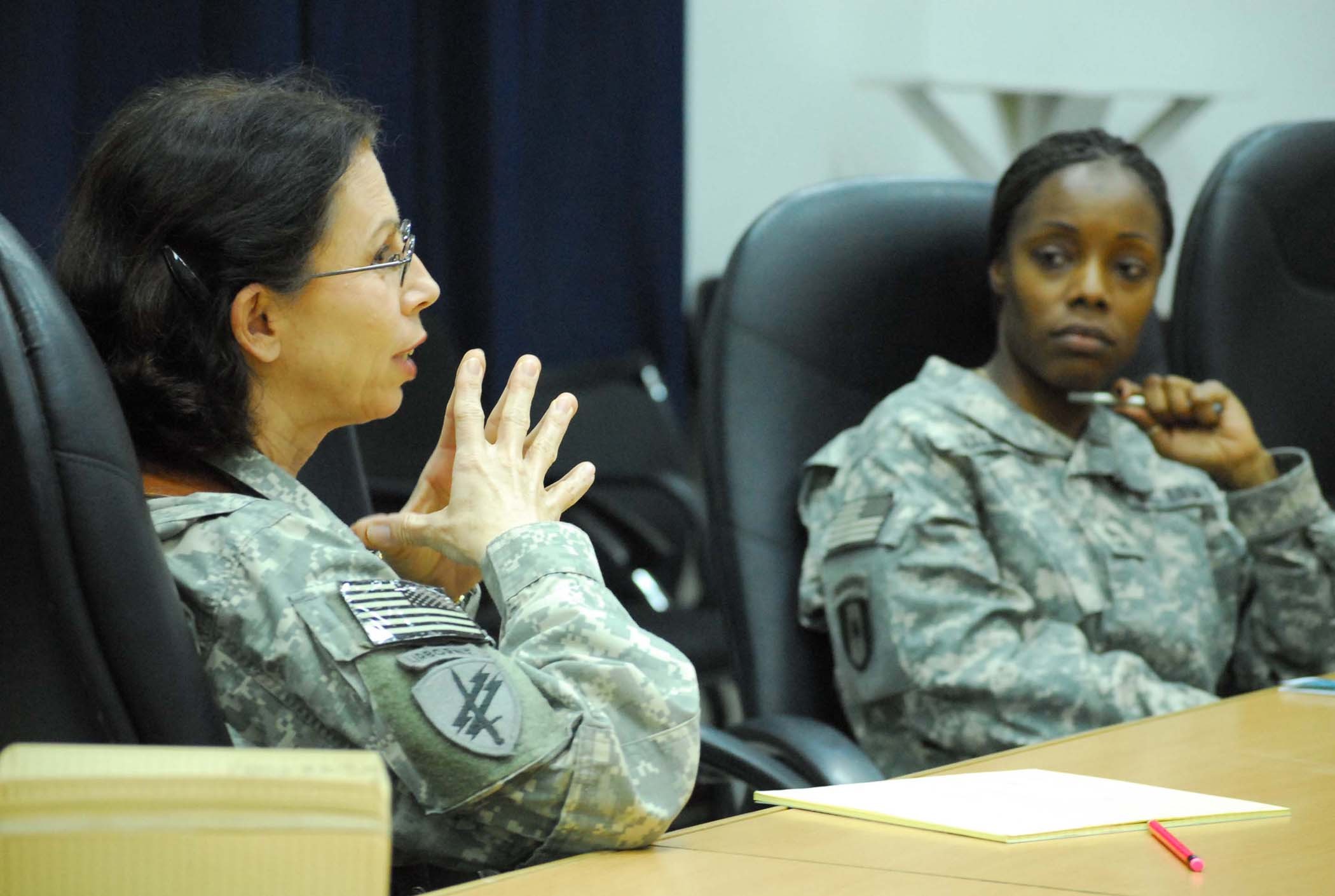In an effort to ensure sexual assault victims get the best care possible, no matter where they are in the world, the Department of Defense organized a task force to review sexual assault prevention and response procedures.
The Defense Task Force on Sexual Assault in the Military Services came to Camp Victory March 11 to talk with chaplains, medical and legal personnel, Criminal Investigations Division agents, deployed sexual assault response coordinators and victim advocates regarding how they handle cases of sexual assault.
Sexual assault remains a problem for the military services with 2,688 unrestricted reports and 705 restricted reports made in 2007. Of these, 174 came from the U.S. Central Command area of operations.
The task force is visiting military locations worldwide to evaluate how well the services are implementing the DoD sexual assault policy, as outlined in DoD Directive 6495.01, Sexual Assault Prevention and Response (Oct. 2005), and DoD Instruction 6495-02, Sexual Assault Prevention and Response Program Procedures (June 2006). According to task force co-chair Delilah Rumburg, spending time in Iraq is absolutely vital to properly evaluating sexual assault policies and procedures in the military because of the unique conditions and situations in a deployed environment.
Rumburg further explained that the bottom-line purpose of the task force mission is to create a prevention program so sexual assaults no longer occur. Other key areas of emphasis are training and educating servicemembers about sexual assault and improving the quality of care victims receive from their first responders, she added. "We need to make sure the systems are in place to respond and protect," Rumburg said.
First responder personnel, such as the medical personnel and CID agents, had the opportunity to let the task force know what does and doesn't work and what resources could help accomplish the mission.
Everyone interviewed agreed that the key to preventing sexual assault is education. Command Sgt. Maj. Joseph Allen, command sergeant major, Multi-National Corps - Iraq told the task force a big issue is troops not understanding what sexual assault is. "People always think of brute force, but that's not how it happens in most cases," he said. He recommended teaching, rather than threatening Soldiers with punishments, is the way to protect the force.
Later this year, the task force will report their findings and recommendations to Congress. They will provide "recommendations to overcome barriers impacting the effective implementation of DoD policy," the overall findings and conclusions of the interviews and policy and law change recommendations, according to the task force mission statement.
"This is a serious, serious situation [sexual assault]," said Capt. Anthony J. Gentilia, commander, 520th Area Support Medical Company. "I hope they come up with good resources for all commanders on the ground to better take care of Soldiers."
The task force asks that servicemembers who are or who know victims of sexual assault contact the task force to discuss their experience. Rumburg pointed out that no one knows what works and what doesn't work better than someone who has dealt with the system. All interviews are kept anonymous. Those interested can go to www.dtic.mil/dtfsams/ or email assist@wso.whs.mil to share their experience.


Social Sharing